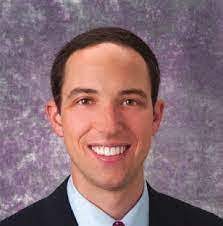
Ensuring Professional Success as an Emergency Medicine Specialist
Introduction: Becoming a successful emergency medicine specialist requires dedication, hard work, and a commitment to ongoing professional development. Dr Michael Hilton highlights key strategies that can help aspiring emergency medicine specialists excel in their career path. From obtaining a credible medical degree to cultivating effective communication and teamwork skills, these tips are essential for professional success in the dynamic field of emergency medicine.
Obtain an Accredited Medical Degree: Securing an accredited medical degree is the foundation of a successful career in emergency medicine. Accreditation ensures that your medical education meets specific quality standards, granting credibility to your degree and facilitating licensure and certification processes. Pursue education from reputable medical schools that have received accreditation from recognized accrediting bodies. This will provide a strong academic foundation and enhance your employability.
Obtain Certification from a Medical Certifying Body: Certification by a reputable medical certifying body is vital for practicing as an emergency medicine specialist. These organizations establish and uphold professional standards within the medical field. Becoming certified demonstrates your competency and commitment to providing high-quality care. It is recommended to pursue certification from esteemed certifying bodies to enhance your professional profile and opportunities within the field of emergency medicine.
Develop Effective Listening, Communication, and Teamwork Skills: Proficiency in communication is crucial for success in emergency medicine. As an emergency medicine specialist, you must be an attentive listener to accurately understand patients’ concerns and symptoms. Effective communication ensures clear and concise exchange of information with patients, colleagues, and other healthcare professionals.
Furthermore, emergency medicine requires seamless teamwork and collaboration. Cultivate strong interpersonal skills, respect for diverse perspectives, and the ability to work cohesively in a fast-paced and high-pressure environment. Effective teamwork improves patient outcomes, reduces medical errors, and enhances overall efficiency.
Continual Professional Development: To stay at the forefront of emergency medicine, engage in ongoing professional development. Attend conferences, workshops, and seminars dedicated to emergency medicine to stay updated with the latest advancements, research, and best practices. Engage in continuing medical education programs to enhance your knowledge and skills in various areas of emergency medicine. Pursue specialized certifications and advanced training opportunities to broaden your expertise and expand your career opportunities within the field.
Embrace a Lifelong Learning Mindset: The field of emergency medicine is ever-evolving. Embrace a lifelong learning mindset, continuously seeking opportunities to expand your knowledge and skills. Stay abreast of new research, technologies, and treatment modalities in emergency medicine. Actively engage in self-directed learning, engage in case discussions, and participate in medical literature review groups. Dr Michael Hilton By remaining curious, adaptable, and open to new knowledge, you will thrive as an emergency medicine specialist.
Conclusion: Becoming a successful emergency medicine specialist requires a combination of academic excellence, professional certifications, effective communication and teamwork skills, and a commitment to continuous learning. By obtaining an accredited medical degree, pursuing certification from reputable certifying bodies, and honing essential communication and teamwork skills, you can build a strong foundation for professional success in emergency medicine. Embrace opportunities for professional development, stay updated with the latest advancements, and cultivate a lifelong learning mindset to excel in this dynamic and fulfilling field.